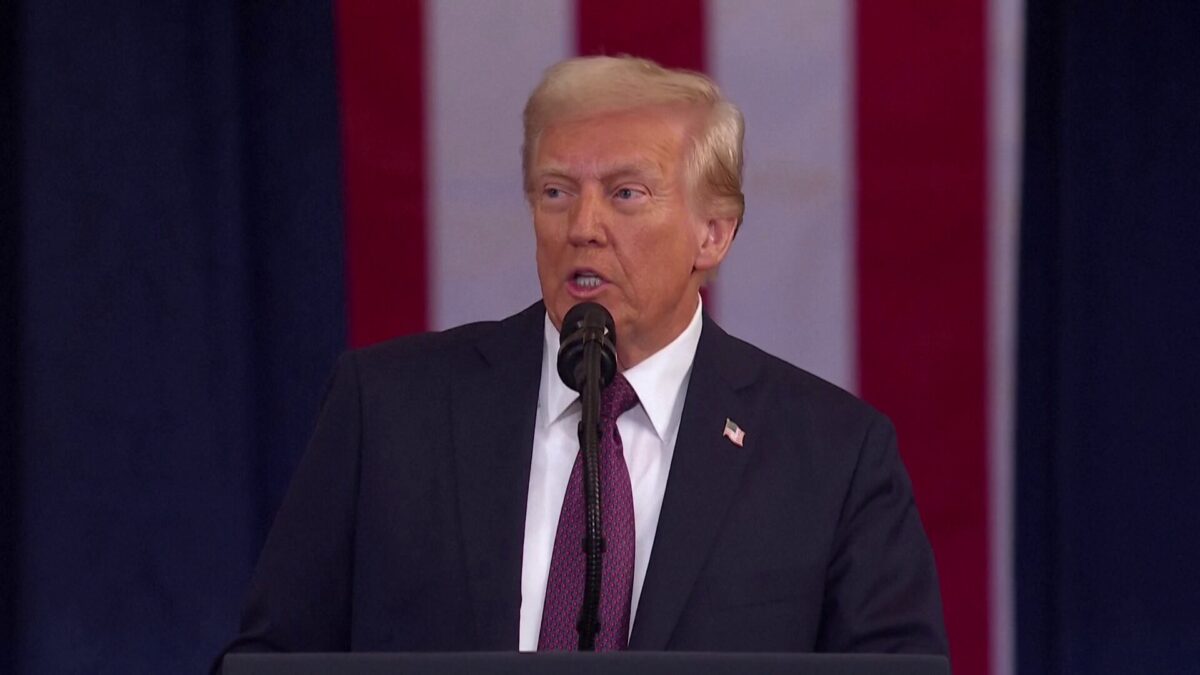Donald Trump took the oath of office as the 47th president of the United States on Monday, marking the beginning of his second, nonconsecutive term with a fiery and wide-ranging inaugural address. His speech underscored his return to the national stage as a self-proclaimed defender of American greatness and a disruptor of the political status quo.
Trump’s inauguration caps a political comeback that has defied precedent. He survived two impeachments, a felony conviction, multiple indictments, and even two assassination attempts. In his address, he leaned heavily on themes of resilience, patriotism, and populism.
“Our nation’s decline is over,” Trump declared. “I was saved by God to make America great again.”
A speech packed with promises
Trump’s speech oscillated between a rally-style checklist of policy priorities and grand declarations about America’s future. He promised to rebuild the nation’s economy by expanding oil and gas exports, while pledging to “end the chronic disease epidemic” and reinstate military service members removed due to COVID-19 vaccine mandates under the Biden administration.
“We will measure our success not only by the battles we win, but by the wars we end—and more importantly, the wars we never get into,” Trump said, portraying himself as a peacemaker. He also credited his administration with the release of Israeli hostages, a negotiation carried out jointly with the outgoing Biden administration.
Trump highlighted his first-term achievement of creating the Space Force, while aligning himself with figures like Elon Musk, whom he credited with advancing American innovation.
Contentious claims and culture war appeals
The address, while aimed at rallying his base, also included controversial and factually incorrect claims. Trump falsely stated that China controls the Panama Canal, an assertion he has repeated in the past. He also proposed renaming the Gulf of Mexico the “Gulf of America.”
Trump’s rhetoric leaned into cultural flashpoints, declaring that government policy would recognize “only two genders: male and female” and that he would forge a “colorblind and merit-based society.” The remarks align with his administration’s decision to dismantle diversity, equity, and inclusion programs.
He vowed to restore “free speech to America” and end what he called “government censorship,” a continuation of his battles with news outlets and social media platforms.
The speech diverged from the traditional unifying tone of inaugural addresses, resembling more of a State of the Union or campaign rally. While Trump praised Black and Hispanic Americans for their electoral support and paid homage to Martin Luther King Jr. on the national holiday honoring him, his address largely eschewed calls for unity in favor of emphasizing his plans to reshape the country.
“Our golden age has just begun,” Trump said, describing himself as a bulwark against what he called an “angry, violent, and totally unpredictable” world.
The inauguration, held on Martin Luther King Jr. Day, comes as Trump’s second term begins amid deep political and cultural divisions. His ambitious agenda, bold promises, and polarizing rhetoric are sure to set the tone for what is expected to be another turbulent chapter in American politics.





